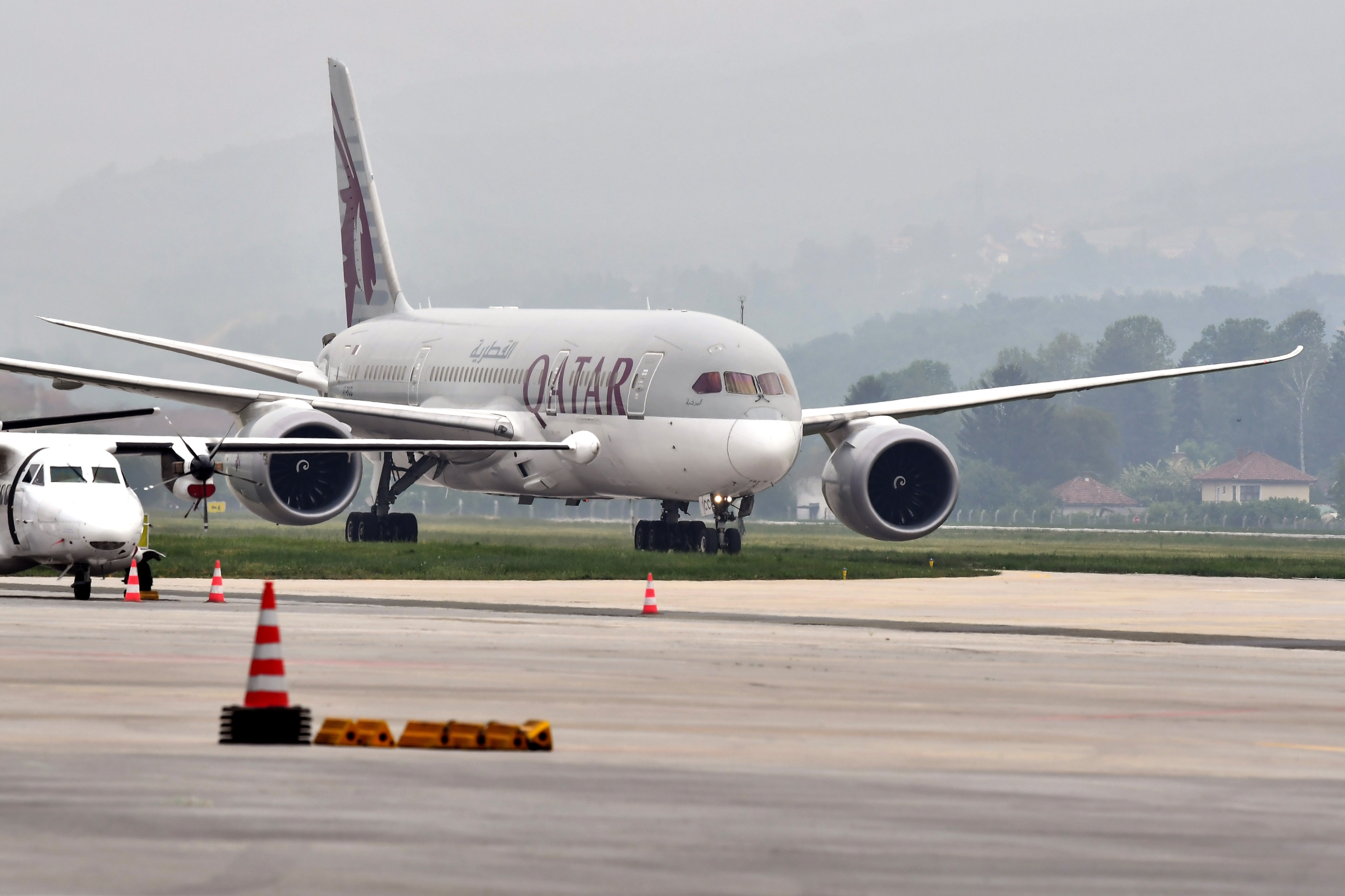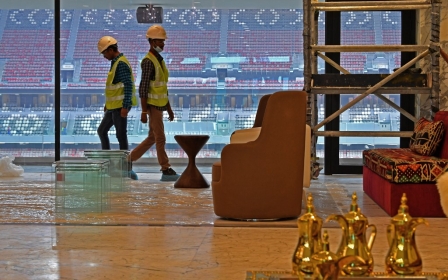Qatar blockade: Top UN court rules in favour of Doha in airspace case

The UN's court has ruled in favour of Qatar in a dispute over the blockading of the country's airspace by a number of neighbouring Arab states.
The International Court of Justice (ICJ) on Tuesday said it "rejects the appeal" by Bahrain, Egypt, Saudi Arabia and the United Arab Emirates against a decision by the world civil aviation body in favour of Qatar over sovereign airspace, ICJ President Abdulqawi Ahmed Yusuf said.
In a statement, Qatar said it welcomed the ruling.
"We welcome today's decision by the ICJ that will see the blockading states finally face justice for violating international aviation rules," said Qatar's minister of transport and communications, Jassim Saif Ahmed al-Sulaiti.
Three-year blockade
New MEE newsletter: Jerusalem Dispatch
Sign up to get the latest insights and analysis on Israel-Palestine, alongside Turkey Unpacked and other MEE newsletters
Saudi Arabia, Bahrain, the UAE and other allies abruptly severed ties with Qatar in June 2017, accusing the gas- and oil-rich country of backing Islamist militants and Iran.
They imposed wide-ranging punitive measures including banning Qatari planes from their airspace, closing Qatar's only land border with Saudi Arabia and expelling Qatari citizens.
Doha strongly denies the allegations.
The ICJ on Tuesday also held that the International Civil Aviation Organisation (ICAO) has jurisdiction" in the case, by 15 judges to one.
The ICAO in 2018 ruled it had the jurisdiction to handle a dispute brought by Qatar, which accused its neighbours of violating a convention that regulates the free passage of its passenger planes through foreign airspace.
But the four allies disagreed, saying the ICAO was not the right body to judge in the dispute and that its decision to do so was "manifestly flawed and in violation of fundamental principles of due process and the right to be heard".
They had asked the ICJ to declare the aviation body's ruling "null and void and without effect".
Middle East Eye delivers independent and unrivalled coverage and analysis of the Middle East, North Africa and beyond. To learn more about republishing this content and the associated fees, please fill out this form. More about MEE can be found here.




